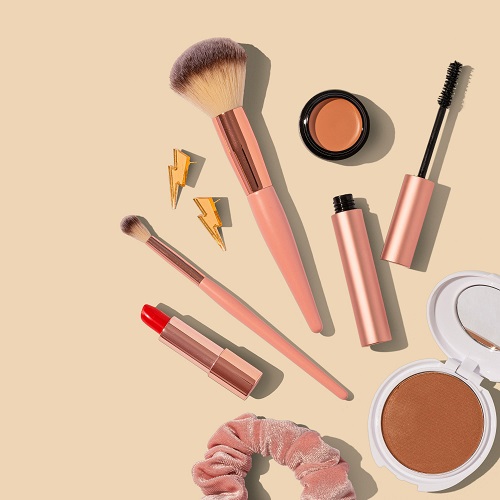Cosmetic Shop Business

Type: Retail.
Key Products for Sale:
- Makeup products (nail polish, concealer, eye shadow, mascara, lipstick, etc.)
- Hair care products (weaves, hair extensions, shampoo, conditioner, hair cream, etc.)
- Skincare products (moisturizer, body lotion, age-defying cream, exfoliator, etc.)
- Toiletry products (soap, deodorant, toothpaste, body perfume, etc.)
Technology Considerations:
- Point-of-sale (POS) system for inventory management and sales tracking.
- Online presence through social media platforms and a website for marketing and customer engagement.
Market for the Products:
- General consumers interested in beauty and personal care products.
- Professional makeup artists and hair stylists.
- Beauty salons and spas.
- Hotels and hospitality industry for guest amenities.
Key Inputs into the Business:
- Startup capital for inventory, rent, utilities, and other operational expenses.
- Location with high foot traffic and visibility.
- Knowledgeable and customer-oriented staff.
- Effective marketing and advertising strategies.
Product Preparation Process:
- Regular stocking of inventory from wholesale suppliers.
- Proper display and arrangement of products in the store to attract customers.
- Ensuring products are well-labeled with prices and descriptions.
Quality Considerations:
- Offering high-quality, authentic products from reputable suppliers.
- Providing excellent customer service and product knowledge assistance to customers.
Cost of Investment:
- Startup capital: Ksh 300,000
- Beauty products inventory: Ksh 100,000
- Furniture: Ksh 20,000
- Rent and upfront rent: Ksh 50,000
- Electricity expenses: Ksh 3,000
- Salary for staff: Ksh 15,000
- Computer and printer: Ksh 30,000
- Advertising: Ksh 5,000
- Licenses and permits: Ksh 20,000.
Required Operational Infrastructure:
- Retail space with shelving, display units, and seating area for customers.
- Adequate lighting and ventilation.
- Security measures to prevent theft and ensure customer safety.
- Back-office area for administrative tasks and inventory management.
Most Suitable or Viable Location of the Business:
- Central business districts, malls, or plazas with high foot traffic.
- Near beauty salons, spas, or hairdressing establishments.
- Accessible and visible storefront with parking facilities.
Potential Sources of Investment Capital:
- Personal savings or investments.
- Small business loans from financial institutions.
- Partnership arrangements with investors or business partners.
Requirements for Effective Management:
- Regular monitoring of inventory levels and sales performance.
- Staff training on product knowledge, customer service, and sales techniques.
- Adherence to regulatory requirements and compliance with tax regulations.
Role of Mobile Phone and ICT in the Business:
- Communication with suppliers, staff, and customers.
2, Use of social media platforms for marketing and customer engagement. - Online ordering and delivery management for customer convenience.
Statutory Regulations and Licenses:
- Business registration with relevant authorities.
- Compliance with health and safety regulations for retail establishments.
- Obtaining business permits and licenses for operating a retail store.
Pricing:
- Competitive pricing based on market research and profit margin analysis.
- Regular review of pricing strategies to remain competitive in the market.
Profitability:
- Profit margin: 40%
- Daily profit estimate: Ksh 3,000 – Ksh 5,000
- Monthly profit estimate: At least Ksh 50,000.
Next Steps to Take:
- Secure startup capital and finalize the business location.
- Stock inventory and set up the store layout.
- Hire and train staff members.
- Develop marketing and advertising strategies.
- Obtain necessary licenses and permits.
- Launch the business and monitor performance regularly for growth and profitability

